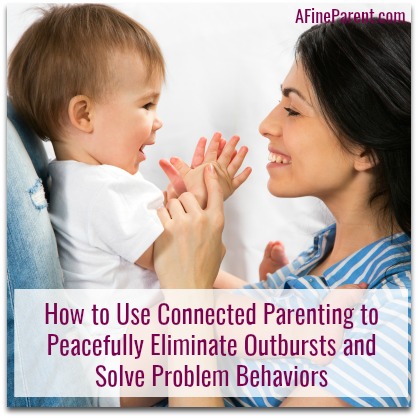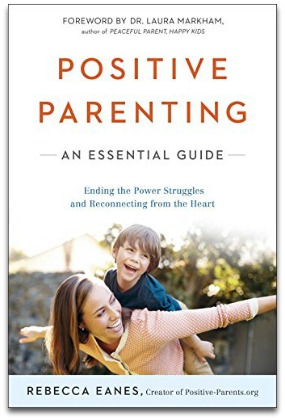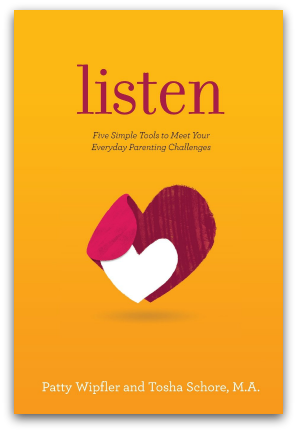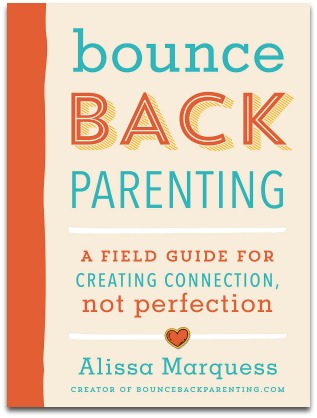 I am not going to do it and you can’t make me!!!
I am not going to do it and you can’t make me!!!
My youngest is now laying on the floor, screaming out a guttural cry of defiance like some kind of Scottish warrior in Braveheart. Laying next to him is the cause for all this yelling and crying – his violin.
He does NOT want to play his violin.
Not today. Not tomorrow. Not now. Not in 5 minutes. Not in an hour. Not. Ever.
“NEVEAHHHHHHHHHRRRRRR!” he shouts, writhing on the ground.
We have come to an impasse.
Because there is nothing I can do or say right now that is going to cajole him into playing his violin. No bribe in the world will be big enough, no promise I can make grand enough to get him up off the ground and happily practicing Go Tell Aunt Rhody.
Here are a few of the thoughts that crossed my mind during this episode:
- Oh my God!
- What is wrong with him?
- If he screams loud enough the windows are going to break.
- I wonder if the neighbors can hear this.
- Are they going to call CPS on me?
- How am I going to get him to practice?
- His lesson this week is going to be awful.
- Why is he doing this to me?
But is he doing this to me? Or am I doing this to him? Or are we doing this to each other? And what is this?
Disconnected Parenting
There was a time when whatever the parent said was The Law. “You will do your laundry on Sunday. You will set the table. You will study for your test.” And we responded with a dutiful head nod and a “Yes, Mom.”
 We did it because we feared the punishment if we didn’t do it. Not because we felt like it was our contribution to the family, or because we wanted to do well in school.
We did it because we feared the punishment if we didn’t do it. Not because we felt like it was our contribution to the family, or because we wanted to do well in school.
We did it because “I said so” was the prevalent form of parenting. And if we didn’t we got spanked, or grounded, or at the very least, our allowance taken away.
The world isn’t like that any more. Fear of punishment doesn’t garner respect. It never did.
Dr. Laura Markham, author of Peaceful Parent, Happy Kids: Workbook, says that parenting is more about leading through being authentic and transparent than being all-knowing and all-powerful. We model the behaviors we want and they mimic how we relate to the world.
We parent through being connected with our children. Connection brings influence over their decisions and actions. With disconnection comes misbehavior and outbursts.
We all practice connected parenting when our kids are babies. When they cry we try to think about why they are crying. We use empathy to put ourselves in their shoes to figure out if they are hungry or tired or need a clean diaper. And we don’t think of it as “misbehaving”! We think of it as “what are they trying to tell me?”
 At some point we stop thinking of every outburst or bit of bad behavior as “what are they trying to communicate” and start looking at it as “you are being bad.”
At some point we stop thinking of every outburst or bit of bad behavior as “what are they trying to communicate” and start looking at it as “you are being bad.”
Rebecca Eanes, author of Positive Parenting: An Essential Guide, believes that this switch is in part because we begin to put all the responsibility for behaviors on the child, and at the same time we remove from ourselves the responsibility for teaching them how to handle frustrations or difficult situations.
So if I can believe that my son’s tantrum is in part due to a disconnection between us and that he is asking for help in learning how to deal with frustration then the solution should be redeveloping that connection and teaching him coping techniques.
Share the Tension
Parenting isn’t all sunshine and unicorns, though. It’s fighting my communication habits and dealing with horrible thoughts that fill my head as my child pushes every button I have. That can be very, very lonely place. And reaching out to be a connected parent from this place can feel impossible.
Let’s take a step back and look again at all those thoughts I had while my son was throwing his tantrum.
- Oh my God!
- What is wrong with him?
- If he screams loud enough the windows are going to break.
- I wonder if the neighbors can hear this.
- Are they going to call CPS on me?
- How am I going to get him to practice?
- His lesson this week is going to be awful.
- Why is he doing this to me?
How many of them are actually about him and how many are really about me? If we just discount thought #1, that means that 1 thought is about him and the other 6 are about the fear, anger, and other parenting tension that I carry around with me.
That tension can be one of the reasons I can feel disconnected with my children. It can also make it hard to calm myself down before responding to their misbehavior.
 Patty Wipfler, founder of Hand-In-Hand Parenting and author of Listen: 5 Simple Tools to Meet Your Everyday Parenting Challenges, says one of the keys to being able to consistently remain connected to your children is to have a place where you can share the emotional tension of maintaining that connection. It’s called a Listening Partnership.
Patty Wipfler, founder of Hand-In-Hand Parenting and author of Listen: 5 Simple Tools to Meet Your Everyday Parenting Challenges, says one of the keys to being able to consistently remain connected to your children is to have a place where you can share the emotional tension of maintaining that connection. It’s called a Listening Partnership.
A Listening Partner is an intentional partnership with another person (not a family member) so you can share all your thoughts and release that emotional tension that is clogging up your mind. Once that tension is released you have more mind space and intelligence at your disposal to handle tricky situations with your family.
I will be able to get my own reactions under control more quickly and I will have more resources available to not connect with my son, but also to find a solution to the problem.
I also start to feel as if I’m not alone in all this. I have support in all the things that are weighing down my mind and hindering me from being my best parenting self. I am free to start reconnecting with my children.
Reconnecting
 Luckily, there are some really easy ways I can start building up that connection again. Alissa Marquess, author of Bounce Back Parenting: A Field Guide for Creating Connection not Perfection, has a number of little rituals that foster the connection between you and your child. One is as easy as just smiling at them. Another is snuggling in the morning.
Luckily, there are some really easy ways I can start building up that connection again. Alissa Marquess, author of Bounce Back Parenting: A Field Guide for Creating Connection not Perfection, has a number of little rituals that foster the connection between you and your child. One is as easy as just smiling at them. Another is snuggling in the morning.
She also recommends developing a daily ritual that specially speaks to what your child loves and what you love doing with them. It should be something that makes you both feel cozy and happy, like building a craft or drawing.
For my son and I it is reading a story together. We love reading and going to the library to get a new story. Usually it is right at bedtime. I read him a chapter of whatever book he’s into at the moment; right now it’s Sea of Monsters.
We also have Special Time together. This is a time where you just sit with your child, one-on-one, and be together. No phones. No TV. No distractions. Just sit and hang out.
He and I have our Special Time in the mornings after his older brother has left to go to school. We sit together on the couch or at the table while he eats breakfast and I just let him talk and ask me whatever questions he wants.
And it has been worth it. Not only because he and I are getting closer to each other and I can feel our connection is stronger, but also because he shares philosophical gems like, “You gotta get the Peep before the Peep gets you.” Frankly, I love these times together because I cannot wait to hear what he is going to say.
Connection to Change Behavior
Building the connection will help us have a steady foundation for our relationship, but what can I do as he is there, on the floor, shouting ATT-I-CA! ATT-I-CA! that will calm him down so we can actually work out a solution?
Rebecca Eanes recommends solution-oriented discipline for situations like these. It’s just 5 simples steps. We first look at the “why” behind the behavior. Then we calm ourselves down and try to connect with your child. Once they are calm we, together, seek a solution, and then we restore their sense of self and reconnect with them if we lost our cool in the middle of it all and harsh words were said.
1. Find out the ‘why’
I wasn’t sure quite what the reason was for this meltdown. He loves playing the violin. No, really. He actually does. He will play on it for an hour. Sometimes his practice pieces and sometimes just whatever song he can make up. That day however, violin was a no-go.
It was after school and he had just finished eating his snack and doing his homework. He couldn’t be hungry, because he just ate. He wasn’t stressed about homework because he’d just done it.
But he hadn’t played yet. He hadn’t yet been allowed to do whatever he wanted. All day long he’d been told when to sit and when to stand and what to focus on. And he was done. D-O-N-E. He was NOT going to be told to do one more thing.
2. Calm yourself first
I took at deep breath and practiced Dr. Becky Bailey’s STAR method. Smile. Take a breath. And. Relax. I got control of my own emotions and then looked at how to help him with the frustration that was boiling out of him.
3. Connect with your child
As I looked at him laying there I decided there was only one thing to do. I decided to lie down next to him and scream my own Scottish scream of defiance.
Well that woke him up! He stopped yelling and lifted his head to look at me, his mother, laying on the floor and yelling alongside him.
And then we started laughing. Great, huge belly laughs of hilarity at the ridiculousness of a grown person laying on the floor and yelling. And then we laughed about him laying on the floor yelling. And we hugged and moved to the couch to cuddle and wipe his eyes and reconnect.
4. Find a solution
It turns out my assumption about why he was upset was pretty close to right. He just could not be told to do one more thing.
Plus he was tired! Physically and mentally exhausted from a day full of learning and doing and behaving. He just didn’t have it in him to practice his violin by that time of day.
So we decided, together, that we would practice in the mornings instead. He didn’t leave for school until 8:45 and was usually up by 7:00, which gave him plenty of time to get ready and then practice for the 20 or 30 minutes his teacher had requested.
We’ve been doing this for 7 months now and it has worked out incredibly well. He’s fresher and has more focus to give to his violin pieces. I sit with him during his practice and focus on him and his music. I am there to coach him through spots and I am a very friendly audience, applauding at the end of every piece.
5. Restore and Reconnect
That day we didn’t practice his violin. That day we sat on the couch together and watched videos of orchestras playing pieces and clips of vintage Bug Bunny music segments on Youtube. Even his brother came over to see the music videos.
I also told him I loved him. Not just because he played the violin. I loved him no matter what.
And I belive that has made all the difference.
Get your recording package here NOW.
2-Minute Action Plan for Fine Parents
Today take 2 minutes to think about the last time your child had a meltdown or disobeyed you or did something that you thought was “misbehaving.” Then ask yourself these questions:
- How did you react?
- What could the cause have been? Or if you were in their shoes, how would you have seen the incident?
- Would that have changed how you reacted?
Long-Term Action Plan for Fine Parents
In the following weeks try to find one time each day where you connect with your child. It doesn’t matter what it is, but just find one time where it’s you and them and nothing else.
Also, consider finding a listening partner. Think about the emotional tension you carry with you and seriously think about just trying it out for one week a month. See how it affects your parenting and your relationship with each member of your family.
I really appreciate to this one of the amazing recipe.
Thank you!
This is really good
Thank you!
Thanks for sharing the Best article.
Thank you so much!
Parenting isn’t all sunshine and unicorns
Beautiful 👍
Thank you!